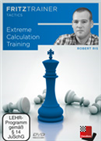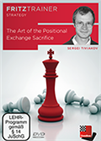Relieved
Magnus Carlsen revolutionized the chess world last year, as his conglomerate of companies, the Play Magnus Group, announced the first online tour for elite players. Carlsen was the deserved winner of the tour, and once it was clear the complications relating to the Covid-19 pandemic would continue in 2021 a second tour was announced.
 Meanwhile, 1.b3 has also found its way into the practice of today's world elite, and now finally a modern top ten player has taken on the subject for ChessBase: none other than Grandmaster Wesley So!
Meanwhile, 1.b3 has also found its way into the practice of today's world elite, and now finally a modern top ten player has taken on the subject for ChessBase: none other than Grandmaster Wesley So!After winning the preliminaries in the first four events of the Meltwater Champions Chess Tour, the world champion had surprisingly not won a single time, getting knocked out in the quarterfinals of the Airthings Masters by Daniil Dubov, in the semifinals of the Magnus Carlsen Invitational by Ian Nepomniachtchi, and losing two finals against Wesley So.
Understandably, the world champion was very relieved after beating Hikaru Nakamura — one of his biggest rivals during the online era — in the finals of the New in Chess Classic. A visibly ecstatic Carlsen noted:
It’s not unfair that I finally win one.
Carlsen celebrated on Twitter, and Anish Giri quickly replied, admiring the fact that a player with such a remarkable record still enjoys these victories:
Much earlier, Shakhriyar Mamedyarov had convincingly defeated Levon Aronian 2½-½ in the second set of the match for third place. The Azerbaijani thus collected 21 points for the overall tour standings. While Shakh is currently in tenth place, Carlsen climbed to clear first place, as he has obtained 185 points so far, 40 more than second-placed Wesley So.
Carlsen 2 - 2 Nakamura
Having lost the first set, Naka had the tough task of beating the world champion in Sunday’s four-game mini-match. The American grandmaster could not have asked for a better start, though, as he won the first game with white.
Carlsen decided to play actively against Nakamura’s safety-first approach in online chess. In the diagrammed position, White is a pawn up and has managed to defend against Black’s threats on the kingside. However, at this point, Naka blundered with 35.Bf4.
White wins in all lines following the stunning 35...Rxd6, definitely a move hard to find in a 15-minute game — 36.Bxd6 Nh3+ 37.Kh1 Bxg2+ 38.Rxg2 Qxc4
 Special attention will be paid to Intermediate Moves, Quiet Moves, Sacrifices on Empty Squares, Mating Patterns, Ignoring Opponents Threat, Calculation in Defence and Method of Comparison. Plus 50 interactive examples to test your knowledge.
Special attention will be paid to Intermediate Moves, Quiet Moves, Sacrifices on Empty Squares, Mating Patterns, Ignoring Opponents Threat, Calculation in Defence and Method of Comparison. Plus 50 interactive examples to test your knowledge.
Of course, even if Carlsen had seen the idea, it would have been difficult to calculate that Black actually wins in every single variation (the one mentioned above is only the most obvious one).
Nonetheless, Naka’s mistake in the 35th move allowed Black to equalize tactically with 35...Nh3+. The game continued 36.Kh1 f5 37.Qe6, and Carlsen again missed a sharp move.
The world champion did find the correct idea, as he played 37...Nxf4 38.Rxf4 Ra8, threatening back rank mate, but after 39.Kg1 White defends and has a winning advantage. Instead, in the diagrammed position, Black had 37...Ra8 immediately, when White needs to lose a crucial tempo dealing with the newly created threats around his king.
As it happened, though, Black’s position continued to deteriorate until resignation came ten moves later.
Nakamura got a good position with black in game 2, but chose to agree to a draw by repetition — a decision that, according to Carlsen, was understandable given the match situation. The world champion then went on to level the score in remarkable fashion.
 The positional exchange sacrifice is one of the most powerful and fascinating strategic weapons in chess. On this DVD Sergey Tiviakov explains why the positional exchange sacrifice is such a strong weapon and how to use it.
The positional exchange sacrifice is one of the most powerful and fascinating strategic weapons in chess. On this DVD Sergey Tiviakov explains why the positional exchange sacrifice is such a strong weapon and how to use it.
24...Rxe5 gives up an exchange to get rid of White’s powerful knight. In typical style, Carlsen meticulously increased his initiative on the kingside until getting a 39-move win.
Unlike in the first set, when Nakamura also needed a win on demand in the fourth game, the American could not get much against Carlsen’s pragmatic, solid play this time around. Already in an inferior position, Nakamura offered a draw, which meant the world champion had won his first event of the Meltwater Champions Chess Tour.
Select an entry from the list to switch between games
Mamedyarov 2½ - ½ Aronian
The trend set in the first mini-match — when all the games favoured the player who had black — continued on Sunday, as Mamedyarov started the day with a win with the black pieces.
With 23...Be6 in the previous move, Shakh left his f4-knight en prise. Here, Aronian’s best chance was to play 24.Bc4, keeping the tension, while entering the position his rival had envisioned with 24.Bxe6 fxe6 25.gxf4 Qxf4 left him in trouble.
The Azerbaijani kept the initiative throughout and eventually simplified into a winning endgame with five pawns against a knight and two pawns.
 In over 4 hours in front of the camera, Karsten Müller presents to you sensations from the world of endgames - partly reaching far beyond standard techniques and rules of thumb - and rounds off with some cases of with own examples.
In over 4 hours in front of the camera, Karsten Müller presents to you sensations from the world of endgames - partly reaching far beyond standard techniques and rules of thumb - and rounds off with some cases of with own examples.
Should Black play 41...g5 or 41...Kh7 here? Mamedyarov chose the correct continuation and went on to win the game in 54 moves. GM Karsten Müller explains to us why the king had to be activated before pushing the pawn.
In game 2, Shakh managed what none of the contenders had achieved up to that point: a draw with the white pieces. Yet another win with black for the Azerbaijani in game 3 meant there was no need for a fourth encounter.
These results left Aronian in sixth place and Mamedyarov in tenth place in the overall tour standings, after five out of ten events.

Click to enlarge
Select an entry from the list to switch between games
Links
























